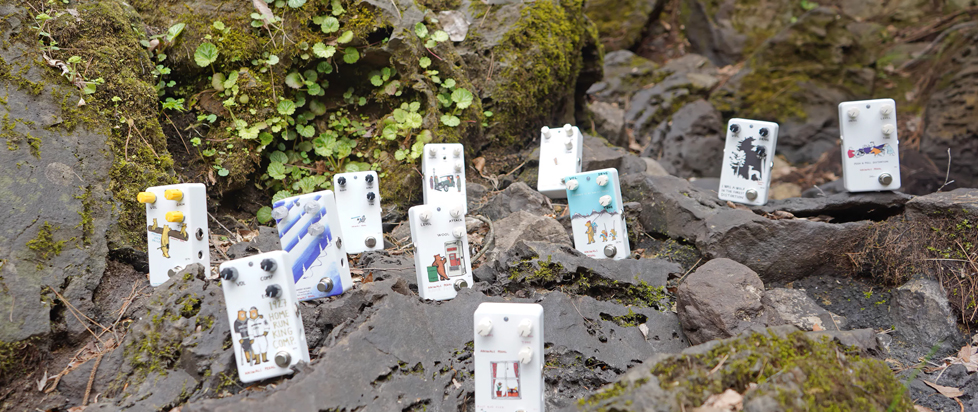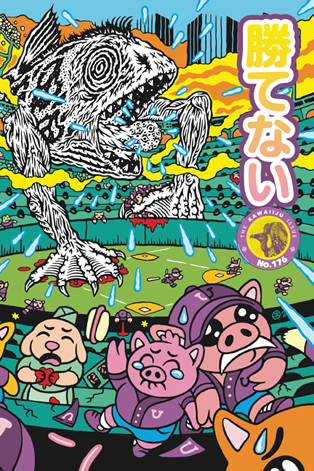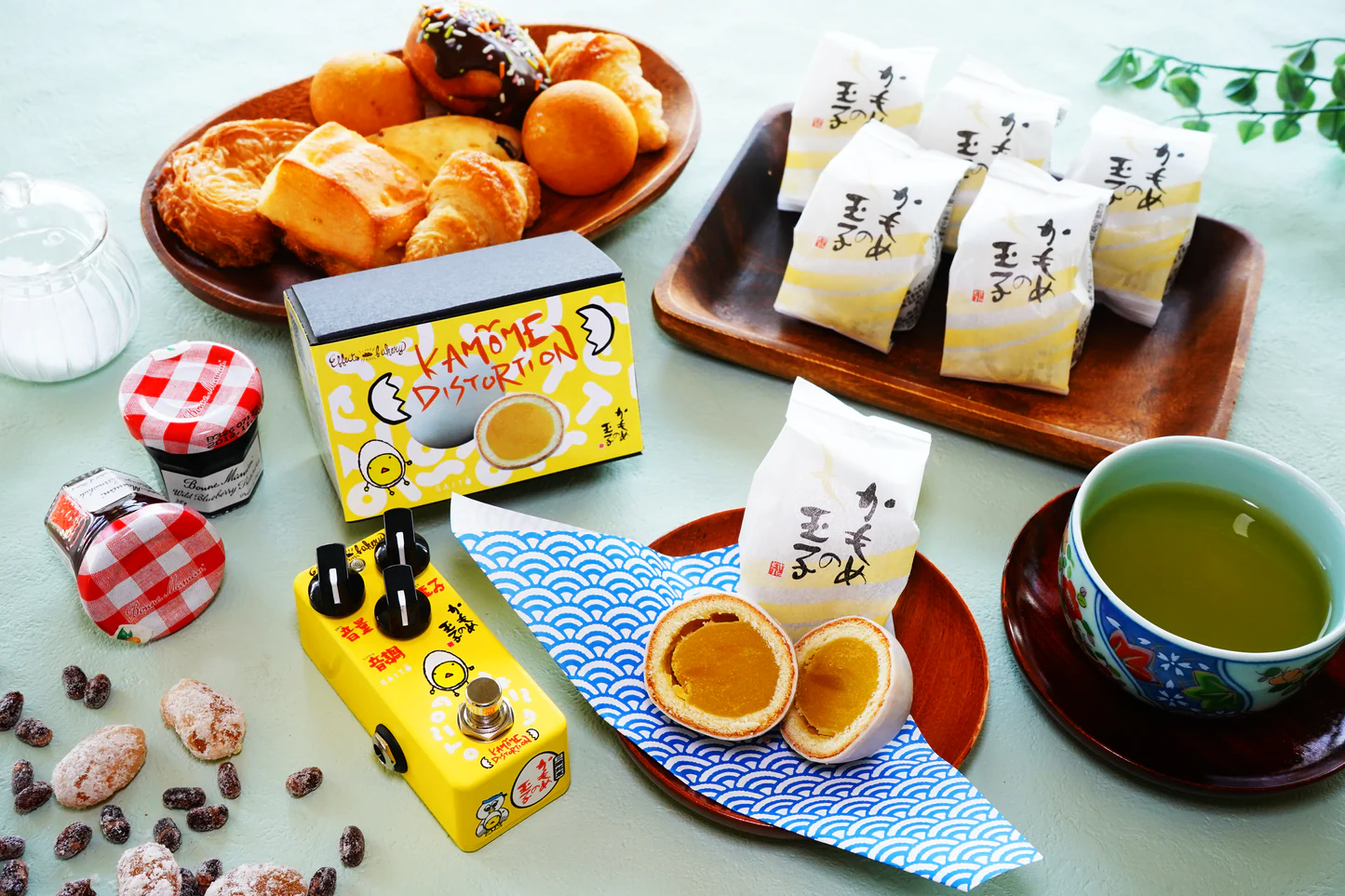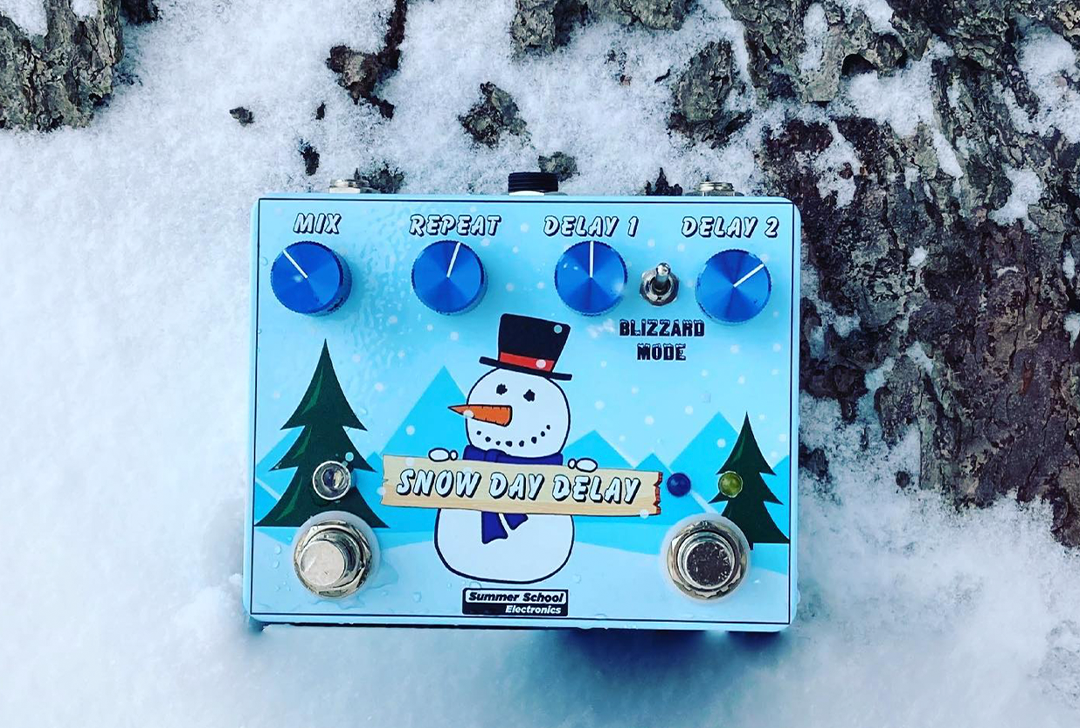
Kawaii, Kaiju, and Guitar Pedals: Window Shopping With Effects Bakery

This column is a reprint from Unwinnable Monthly #176. If you like what you see, grab the magazine for less than ten dollars, or subscribe and get all future magazines for half price.
———
Ruminations on the power of the riff.
———
I have been playing guitar and bass off and on at various points in my life for nearly 25 years. However, it’s only been within the past few years that I’ve developed an obsession with effects pedals, having long preferred to either plug straight into an amp or to use only a minimal selection of stomp boxes to achieve my desired tones. It’s almost a sub-hobby unto itself, one that has opened new avenues for creative exploration that I’ve been messing around with for my entire adult life. It can also become expensive, and so most of my pedal acquisitions have relied on deal hunting for cost-effective gear.
Recently, in my search to find cost-effective pedals to feed my habit without draining my bank account, I stumbled across a company called Effects Bakery. They’re a small Japanese shop that builds basic pedals across most effects categories that most guitarists would ever need. Most of these effects are either clones of historical circuits or basic interpretations of generic effects; since circuits are difficult to patent, it’s a common practice for manufacturers to copy schematics, and use the same or similar components.
Most clone manufacturers will give their pedals names that are plays on words of the originals that they’re emulating. In most cases, even if the two pedals are functionally the same (or even internally identical), this can leave you with the feeling that you’re buying the equivalent of store-brand Pop-Tarts instead of the real deal. We arguably shouldn’t be overinvested in the looks of our equipment, but at the same time, something that’s well-built and visually interesting can encourage us to play our instruments more. For a price.

Effects Bakery could be dismissed as another dime-a-dozen company selling low-cost copies of popular pedals. However, unlike their mostly generic competition, their overt kawaii branding featuring anthropomorphized baked goods lends them such an endearing personality. Their most intriguing options are overdrive and distortion boxes like this – pedals that make the guitar louder and more aggressive – that bring kawaii and kaiju styles together. I mean, look at this. It’s a tiny mecha croissant on an overdrive pedal! I don’t need to hear this thing, just put it in the goddamn cart. I don’t need it, but at the same time, I do.
At the top of my shortlist of their pedals to check out is the Kamome Distortion, a colorful ode to the Kamome no Tamago (which translates to “Seagull’s Egg” in English) dessert that is popular in the Tohoku region of northern Japan. It’s a copy of the Rat, a versatile distortion pedal that gets good and gross at high volume. I already own a Rat and a fancy derivative of the same circuit, but there’s something too fun about the idea of playing thick metallic riffs with a pedal that looks saccharine sweet. It’s such an unlikely pairing of inspirations, from its cultural context to its actual application, that it’s easily worth $45.
Guitarists might want to think they don’t care about branding, the reality is that most of us are extremely superficial and will 100% pay a premium for pedals that will look good on Instagram (and pedals are almost the only thing I look at on that godforsaken app). As such, it’s not unusual for pedal companies to invest heavily in their aesthetics, elevating their products from noisemaking devices to pieces of art in themselves. The abstract sci-fi stylngs of Old Blood Noise Endeavors, minimalist illustration of Earthquaker Devices, and hip aesthetic of Walrus Audio are prominent brands worth checking out for their stellar design even if you don’t play guitar.

However, there are scarce examples of brands fully leaning into kawaii for their loud noisemaking boxes like Effects Bakery. The kinds of music that typically drive the pedal market – mostly loud rock in various forms – don’t exactly scream “cute” and that makes this direction feel bold. The only other companies making unabashedly adorable pedals that comes to mind might be Animals Pedal, Fuzzrocious (specifically the models hand-painted by owner Ryan Ratajski’s wife and kids), and Summer School Electronics (which are made by a schoolteacher). All cut against the grain of traditional pedal aesthetics, unconcerned with self-seriousness, even if their products are used, at least at times, to create auditory chaos.
The more I’ve gotten into pedals, the more I’ve come to feel the downsides of the hobby, namely the sense of always feeling like I need something more or different than what I have. Like many hobbies, there’s also a sense of pretentiousness that can creep into its discourse, worrying too much about arcane design choices that have little real-world performance impact or spending more time carefully curating a collection of overhyped and overpriced pedals to talk about on the internet, rather than using all that gear.
What Effects Bakery is selling are arguably cheap commodities, but they’re also offering a reminder that all of this is meant to be fun, and that it shouldn’t be expensive to enjoy playing music. The world is a heavy place, and most of the music I enjoy reflects that in some way. If some simple miniature pedals can help lift some of that burden even momentarily, then maybe that’s the true power of what it means to be kawaii.
———
Ben Sailer is a writer based out of Fargo, ND, where he survives the cold with his wife and dog. His writing also regularly appears in New Noise Magazine.




